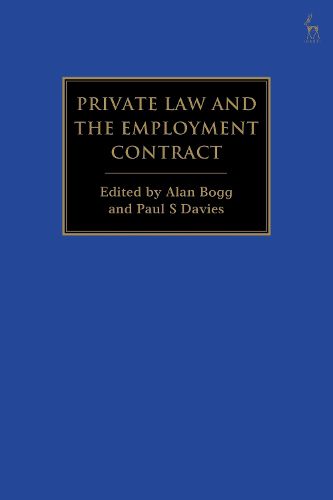Readings Newsletter
Become a Readings Member to make your shopping experience even easier.
Sign in or sign up for free!
You’re not far away from qualifying for FREE standard shipping within Australia
You’ve qualified for FREE standard shipping within Australia
The cart is loading…






This book brings together leading scholars from private law and employment law to reflect upon private law doctrines as they relate to the employment contract.
Developing an interdisciplinary dialogue, these contributions explore the regulatory functions of private law doctrines at the cutting-edge of modern employment law. Topics include: the potential and limitations of private law damages; the role of injunctions and specific performance; the interactions between express and implied terms; vicarious liability; substantial performance and breach; and the common law right to work. The integration of scholarly perspectives from the realms of private law and employment law enriches and deepens our understanding of core private law doctrines.
Historically, employment law was defined in terms of its autonomy from general private law. This achievement of autonomy was highly prized, and considered necessary to facilitate industrial freedoms for trade unions and the protection of employees from exploitation. But the contractual basis of employment means that any such autonomy has always been partial and unstable. Furthermore, as trade unions have declined and governments have deregulated statutory employment rights, private law has assumed growing practical importance in strategic appellate litigation. In many common law jurisdictions, private law doctrines have become the new battleground between employers, workers, and trade unions. The essays in this book examine specific doctrinal issues against this dynamic backdrop of changing social, economic, and constitutional conditions. While focused mainly on English law, the essays also consider examples from other jurisdictions such as Australia and Scotland.
As private law becomes the default regulation for most employment contracts in 21st-century labour markets across the world, this book is an essential resource for practitioners, judges, academics and students.
$9.00 standard shipping within Australia
FREE standard shipping within Australia for orders over $100.00
Express & International shipping calculated at checkout
This book brings together leading scholars from private law and employment law to reflect upon private law doctrines as they relate to the employment contract.
Developing an interdisciplinary dialogue, these contributions explore the regulatory functions of private law doctrines at the cutting-edge of modern employment law. Topics include: the potential and limitations of private law damages; the role of injunctions and specific performance; the interactions between express and implied terms; vicarious liability; substantial performance and breach; and the common law right to work. The integration of scholarly perspectives from the realms of private law and employment law enriches and deepens our understanding of core private law doctrines.
Historically, employment law was defined in terms of its autonomy from general private law. This achievement of autonomy was highly prized, and considered necessary to facilitate industrial freedoms for trade unions and the protection of employees from exploitation. But the contractual basis of employment means that any such autonomy has always been partial and unstable. Furthermore, as trade unions have declined and governments have deregulated statutory employment rights, private law has assumed growing practical importance in strategic appellate litigation. In many common law jurisdictions, private law doctrines have become the new battleground between employers, workers, and trade unions. The essays in this book examine specific doctrinal issues against this dynamic backdrop of changing social, economic, and constitutional conditions. While focused mainly on English law, the essays also consider examples from other jurisdictions such as Australia and Scotland.
As private law becomes the default regulation for most employment contracts in 21st-century labour markets across the world, this book is an essential resource for practitioners, judges, academics and students.